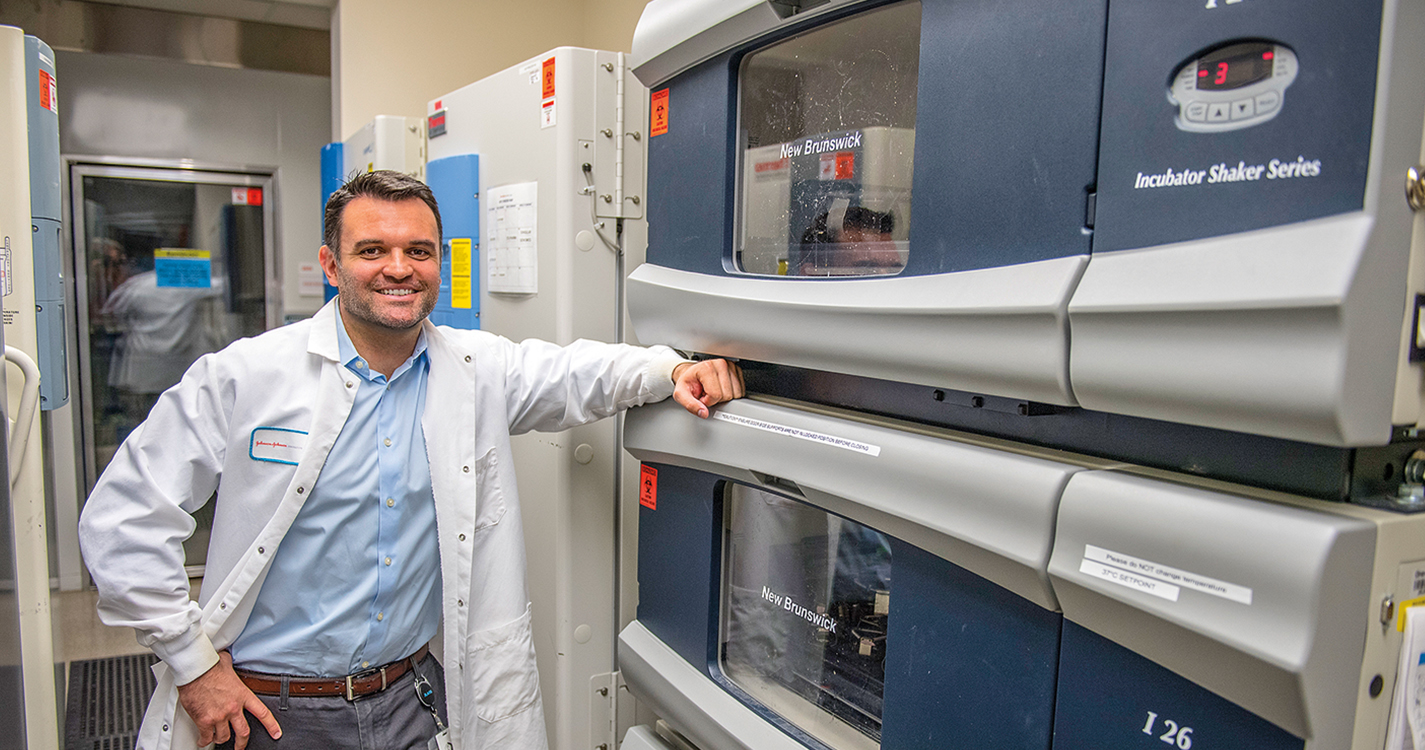Willamette’s motto, “Not unto ourselves alone are we born,” represents what I learned during my time at the university — not only in the classroom but also from three inspirational mentors and a friend who died far too young.
A year after I graduated, my Sigma Alpha Epsilon fraternity brother Kalan Morinaka was diagnosed with amyotrophic lateral sclerosis (ALS). There was never hope or anything to be done — just a slow, painful march to an inevitable death.
Kalan’s suffering and my own feelings of powerlessness eventually led me to a career in medical research. While a PhD student, I discovered a receptor in the central nervous system that seemed to be involved with the regeneration of failed nerves. In 2013, I established a biotech company, Novoron Bioscience, to develop drugs that target the receptor and could potentially reverse nerve damage in the brain and spinal cord.
Now, as part of JLABS, an incubator division of Johnson & Johnson Innovation, Novoron is developing regenerative drugs for damage and/or disease of the brain and spinal cord. Our main programs, funded by nearly $2 million in grants from the National Institutes of Health, are in spinal cord injury and multiple sclerosis.
Current approved therapies for MS aim to reduce the immune system’s attacks on myelin — the protective coating around nerves. But our approach instead aims to restore myelin, effectively reversing the damage from MS. Our technology isn’t disease-specific. As a nerve repair drug, it could help people who have had a stroke or sustained a traumatic brain injury.
It’s both humbling and exciting to have the chance to potentially relieve suffering and add to human knowledge. But if not for three Willamette exercise science professors — Peter Harmer, Stasinos “Stas” Stavrianeas and Julianne “Jules” Abendroth-Smith — I probably never would have made it to graduate school.
All three were incredible mentors who believed in me enough that I learned to believe in myself. Close to graduation, I didn’t have a plan for the future — something that Jules found unacceptable. She insisted I go to grad school, even though I’d missed most application deadlines. Nonetheless, Jules not only found a program that would take me, but one that would do so with tuition remission and a full stipend.
I still keep in touch with Stas and Peter, but Jules passed away unexpectedly a while back. She never got to see where I ended up, and I never really got to tell her what she did for me.
When I speak publicly about my work, I still tell stories of Jules, Stas and Peter. Willamette didn’t just teach me a motto — it gave me an ethos and the best role models.
The flip side of both my career and the Willamette motto is a sense of responsibility to do right. I wasn’t prepared for the pressure of turning my original discovery into a fundamentally new way to address damage or disease of the brain and spinal cord. Add the realities of running a company and feeling responsible for my employees, and it can be a very heavy weight.
As a result of federal budget cuts, 2017 was a rough year for research scientists, and Novoron felt the pinch. But I knew we couldn’t lose our momentum, so we managed to keep going.
When the goal is the greater good, giving up isn’t an option.
What does the Willamette motto mean to you? How does it show up in your life? Email wu-stories@willamette.edu.
This article was originally published in the spring 2018 issue of Willamette magazine.

